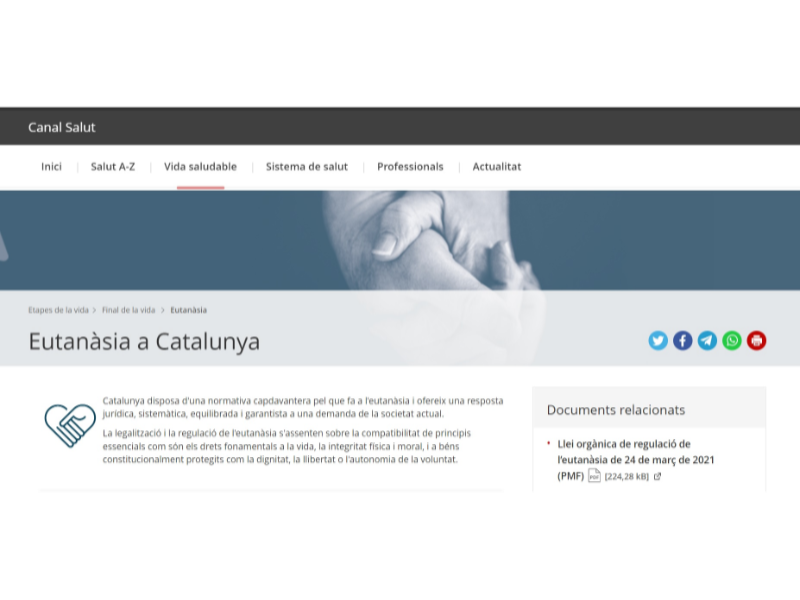- A total of 175 people applied for assisted dying in Catalonia in 2022 and 91 procedures took place
- The majority of the applications came from primary care (114) and hospital centres (51) for the second consecutive year
The Ministry of Health is satisfied with the system's response to the application of the Organic Law governing euthanasia, which guarantees the right to assisted dying for citizens in Catalonia. Two years after the law came into force, Catalonia is offering a systematic, balanced and protective response to a demand from today's society.
The Guarantee and Assessment Commission of Catalonia, the independent body that guarantees the correct application of the law in the country, is in full agreement. The Commission emphasises that the application of the law has been satisfactory in Catalonia, despite the complex nature of the legislation, and also stresses that it is a response to a long-standing social demand, which is becoming consolidated as one of the services provided by the healthcare system.
A total of 175 people applied for assisted dying in 2022 and 91 procedures took place, following the provisions set out in the Euthanasia Act.
Of the 175 people who applied, 55 died before a decision was reached on their application, 12 applications were rejected, 3 were postponed, 1 was revoked and 13 applications were still in the process of verifying compliance with the requirements of the law as of 31 December 2022. Decisions concerning the applications were reached after an average of 42 days.
In gender terms, 41% of the 175 people who applied for assisted dying in 2022 were women, and 59% were men. The average age of those who finally underwent assisted dying was 73.80 years for women and 73.12 for men.
The people who applied for assisted dying suffered from neurological pathologies, accounting for 36.0% of the total, followed by oncological pathologies, representing 34.85%, and to a considerably lesser extent, multimorbidity and advanced fragility and respiratory diseases.
Most of the people who underwent assisted dying were suffering from long-standing illnesses that affected their functional autonomy to a greater or lesser degree and led them to be highly dependent, requiring the assistance of others for personal hygiene, feeding and other basic activities of daily living. Their ability to relate and communicate was also severely impaired in some cases.


